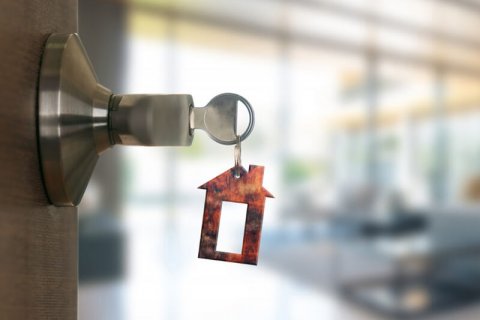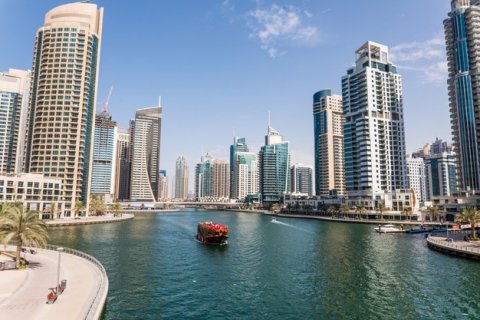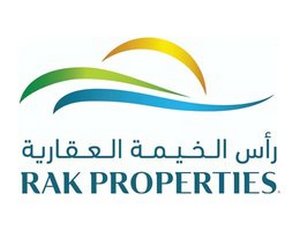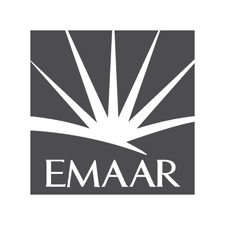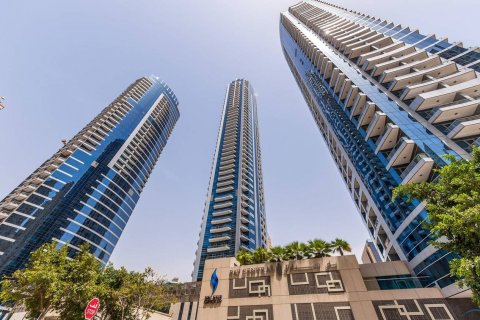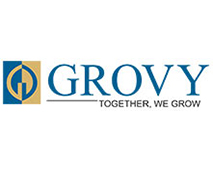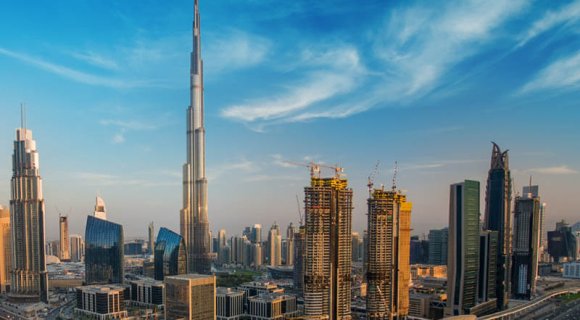
Dubai is the tourist and business hub that offers great opportunities for business. It attracts thousands of entrepreneurs and investors by its free-trade zones. If you are planning to open your own business, but are afraid to choose the wrong location, consider the destination that has been chosen by thousands of entrepreneurs – free-trade zones in Dubai.
Of course, Dubai is not the only Emirate with free zones. They can be found in all Emirates, but Dubai offers the largest number of such zones. In this article, we are talking about what free-trade zones in Dubai and the UAE are, the advantages they offer, and other important details.
Content:
- What is a free-trade zone in the Emirates?
- Features of free-trade zones
- Tax policy
- What is the difference between free-trade zones and freehold zones?
- Mainland zones
- Benefits of launching a business in a free-trade zone
- Location of free-trade zones in Dubai
- Free-trade zones in UAE
- We will help you buy real estate in a free-trade zone in Dubai
What is a free-trade zone in the Emirates?
A free-trade zone in the United Arab Emirates is a special designated area where any foreigner can launch their own company and be its 100% owner. Free-trade zones are autonomous regions with their own governing and regulatory bodies, courts, greater autonomy in the legislative sphere, as well as their own tax systems. For example, a 100% deduction, similar to a domestic VAT deduction, when it is first levied on the exported good and when the good has already left the country, allows the company to apply for a full VAT refund. And there are many similar features.
One more addition is that you can register a company in a free-trade zone and it does not have to do business in the UAE. That is, to open the headquarters of the organisation in the UAE while operating overseas is a common practice.
A local partner or agent is not required to establish a company in the UAE in free trade zones. A legal address is mandatory for registration.
Free-trade zones in Dubai were created to attract business owners and investors from all over the world to work in the Emirates.
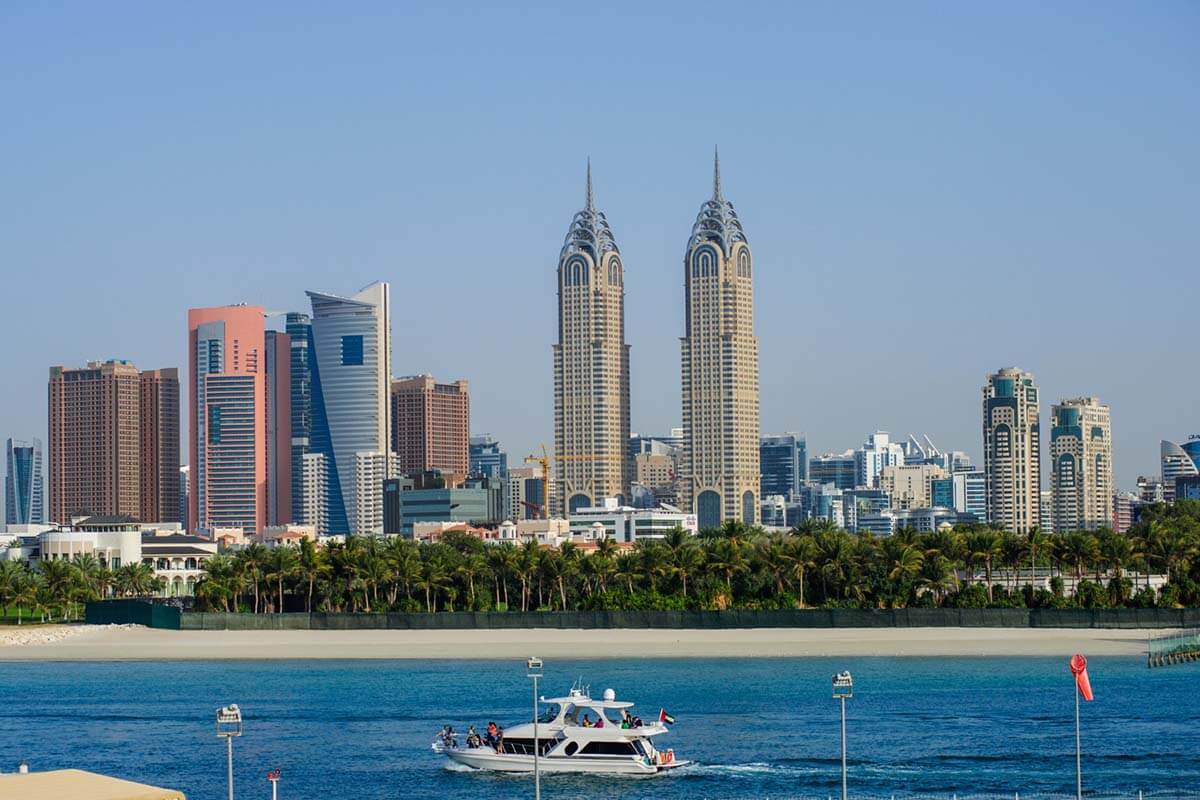
Features of free-trade zones
When launching a company, an entrepreneur can obtain a resident visa (in the same way as getting a residence permit by property investment in UAE). When launching your business, you should keep in mind that you can run your business only in a certain free-trade zone (with some exceptions), or sometimes outside the Emirates.
Currently, Dubai has the largest number of free-trade zones—more than 20. Sharjah has 7 zones; Abu Dhabi has 6; Ras Al Khaimah, Fujairah and Ajman have 2 each; and Umm Al Quwain has 1.
An entrepreneur does not pay any fees for launching and running a company in a free-trade zone, although they are a rightful owner of the company. Every zone has its own regulations and rules, which are established by local authorities.
Tax policy
In Dubai’s free-trade zones as well as in the rest of the Emirates, business owners are exempt from paying the following taxes:
- Company incorporation tax;
- For running a business;
- Customs duties;
- Value Added Tax (VAT).
What is the difference between free-trade zones and freehold zones?
Even though these zones mean completely different things, people often confuse them. So, it is important to know the difference between them.
A free-trade zone (FTZ) is an area designated for managing a business. It allows you to launch and run your own business without additional taxes.
Freehold zones are areas designated for foreign property buyers. Foreign buyers who purchase real estate in Dubai in the freehold areas become its rightful owners. You do not need to have UAE citizenship or residency for this.
Mainland zones
The difference between the mainland and the free economic zone lies in their location.
Mainland zones are areas within a city where free-trade zone rules do not apply. There are some restrictions on doing business in these areas. For instance:
- You need to have a local national partner from the UAE;
- 51% of the company must be owned by a local partnership;
- The company needs to have an office with an area of 140 m² or more;
- A mainland company can operate anywhere in the UAE, while free-trade companies can operate only within their free-trade zone.
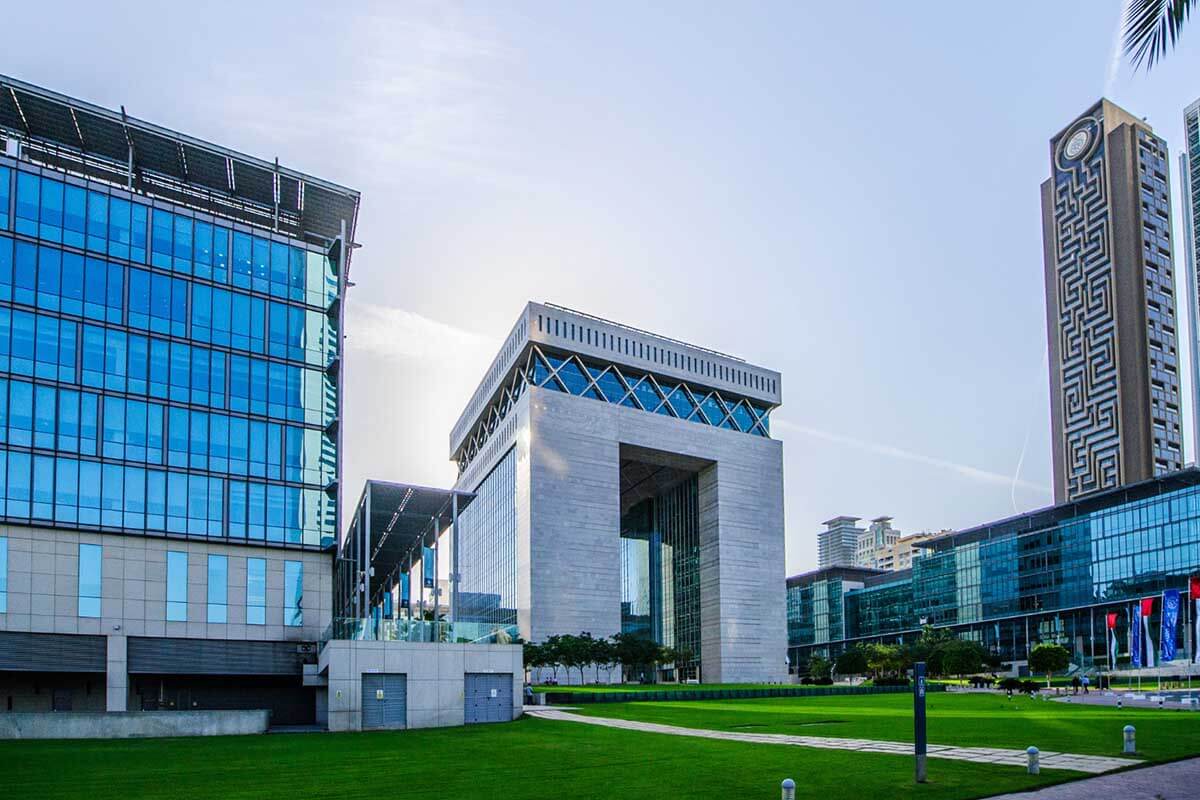
Benefits of launching a business in a free-trade zone
Launching a business in a free-trade zone has many advantages:
- There are no strict requirements and prohibitions in terms of partnership with local companies and representatives;
- Full ownership;
- Virtually no taxes;
- More freedom of action.
The first free-trade zone was created in Jebel Ali in 1985. Today, they are an important fund source for the country’s economy.
Location of free-trade zones in Dubai
If you are planning to move to Dubai or are already an expat who is looking to invest in a business, we recommend you consider the most popular free-trade zones in Dubai.
- Dubai CommerCity (DCC)
The first designated e-commerce free-trade zone in Dubai, DCC is only available to online retailers.
- Dubai Creative Clusters Authority (DCCA)
DCCA regulates 7 industries in 9 free zones. Many international brands have chosen DCCA as their business location, including CNN, PepsiCo, Unilever and others.
Here are the most popular communities that are part of DCCA:
- The business district of Internet City. It is located on Sheikh Zayed Road, approximately 25 kilometres south of the centre of Dubai;
- Dubai Media City: if you work in the media industry, there is no better place to open a business than in this community. It is one of the largest communities in the region for media giants and start-ups;
- Dubai Outsource City: the community specialises in outsourcing, provides training and consulting services;
- Dubai Knowledge Park: this free-trade zone is entirely dedicated to HR management and vocational training businesses.
- Dubai Multi Commodities Centre (DMCC)
DMCC is one of the best free-trade zones in Dubai. This zone has been named ‘Global Free Zone of the Year’ by the Financial Times’ fDi Intelligence for 9 consecutive years.
DMCC is home to the popular Jumeirah Lake Towers community, where you can live, relax, and work.
If you are looking for a spacious office in some of Dubai’s most impressive skyscrapers, visit the JLT free-trade zone.
- Jebel Ali Free Zone (Jafza)
Jafza is one of the most popular free economic zones in Dubai. Thousands of companies have chosen it as their base. This is a free-trade zone that offers unique office space to help your business grow.
- Dubai Airport Freezone (DAFZ)
The zone is mainly dedicated to aviation, cargo and logistics services in Dubai. Dubai Airport Freezone offers a prime location with direct access to one of the world’s busiest airports.
- Dubai Silicon Oasis (DSO)
This free zone includes a huge technology park as well as residential properties. DSO offers everything for doing business in the field of IT including startups. In Dubai Silicon Oasis, you can rent a great variety of office spaces as well as buy or rent an apartment.
- Dubai Healthcare City (DHCC)
This is the perfect place for all healthcare professionals in Dubai. The Dubai Healthcare City Authority (DHCA) regulates the Dubai Healthcare City free zone, which has some of the best hospitals in the world, as well as the best medical clinics and the best medical service.
- International Humanitarian City (IHC)
This zone is a non-profit business district for UN companies, international non-governmental and intergovernmental organisations. IHC is one of the most successful humanitarian centres in the world.
- Gold and Diamond Park
Gold and Diamond Park is a free zone dedicated to the jewellery industry. It hosts a wide variety of gold and diamond retailers.
Here you can build your own factory, open an office or retail space for a thriving jewellery business. The park is located near Sheikh Zayed Street, just a short walk from Mall of the Emirates.
- Dubai International Financial Centre (DIFC)
DIFC is the leading financial centre in the MEASA (Middle East Africa South Asia) region. If you are looking for a place to start your own business, you should consider this zone.
Free-trade zones in UAE
Here is a list of free economic zones located in other emirates.
Abu Dhabi
- Abu Dhabi Global Market (ADGM);
- Masdar City Free Zone;
- Khalifa Port Free Trade Zone (KPFTZ);
- Abu Dhabi Airports Free Zone (ADAFZ);
- twofour54;
- Free zone in Tawazun Industrial Park.
Umm Al Quwain
- Umm Al Quwain Free Trade Zone (UAQFTZ).
Ajman
- Ajman Free Zone (AFZA);
- Ajman Media City Free Zone (AMCFZ).
Fujairah
- Fujairah Creative City (FCC);
- Fujairah Free Zone (FFZ).
Ras Al Khaimah
- Ras AlKhaimah Maritime City (RAKMC);
- Ras Al Khaimah Economic Zone (RAKEZ).
Sharjah
- Sharjah Airport International Free Zone (SAIF);
- Sharjah Publishing City Free Zone (SPC Free Zone);
- Hamriyah Free Zone (HFZA);
- Sharjah Media City (Shams);
- The Sharjah Research, Technology and Innovation Park (SRTIP);
- Sharjah Oasis for Technology and Innovation (SOTI);
- Sharjah Healthcare City (SHCC).
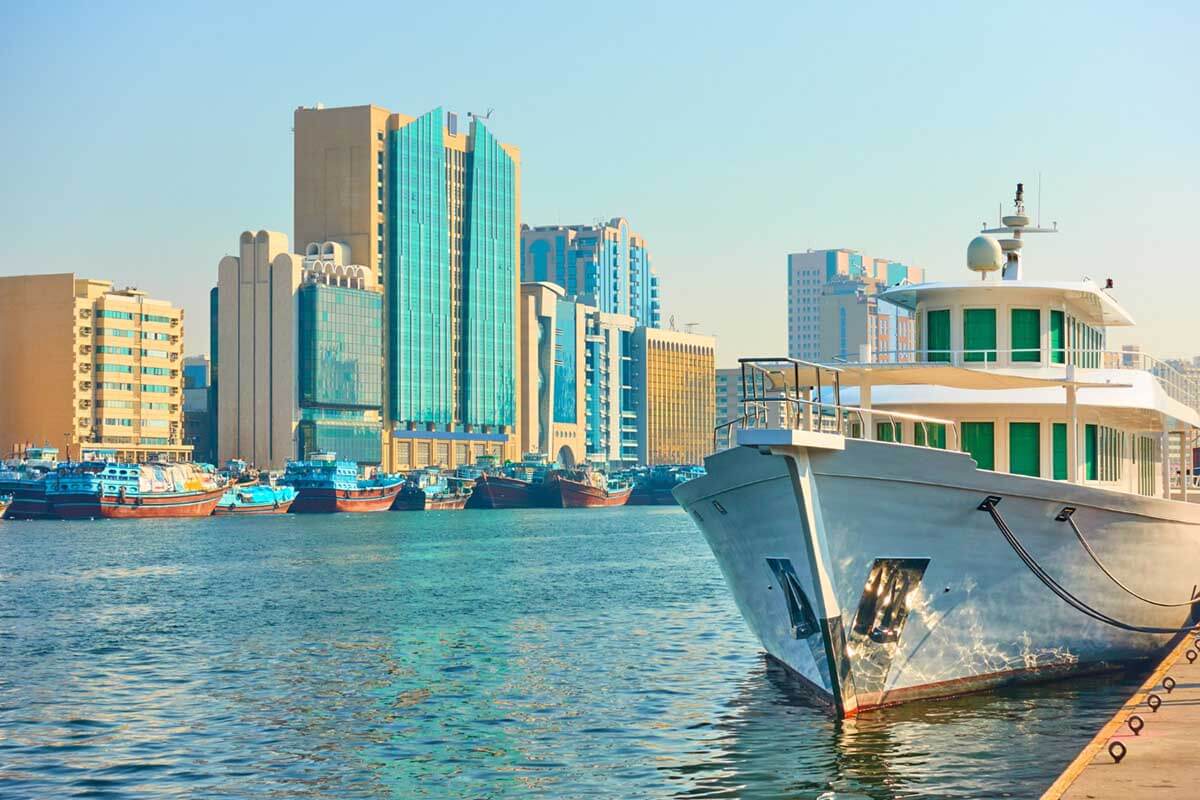
We will help you buy real estate in a free-trade zone in Dubai
Do you want to buy an apartment for sale in Dubai in one of the free economic zones of the UAE? Specialists at Emirates.Estate will provide you with professional support in finding real estate and making a purchase.





































